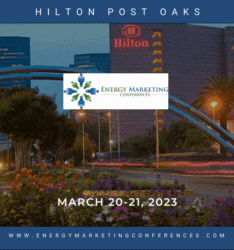|
|
|
|
|
PPL Electric: 2021 Survey Showed More Than 75% Of Respondents Did Not Know They Were Paying More Than Price To Compare
The following story is brought free of charge to readers by VertexOne, the exclusive EDI provider of EnergyChoiceMatters.com
PPL Electric Utilities Corporation (PPL or PPL Electric) urged the Pennsylvania PUC to deny a petition from the Retail Energy Supply Association and NRG Energy, Inc. that had asked the PUC for a declaratory order finding that certain communications sent by PPL Electric to supply customers of electric generation suppliers (EGSs) about their electric supply prices and contracts with EGSs are unlawful
See background on the petition here
PPL Electric said that its communications are competitively neutral and do not violate its most recent default service order (DSP 5), and that they do not violate past precedent with regards to default service provider communications
PPL Electric noted that it has, via email, communicated to shopping customers concerning the price to compare and the customer's selected retail supplier rate
"The emails were tailored to specific customer situations, with customers receiving
different messages depending on whether they were paying above or below the PTC. The emails
sent to customers paying above the PTC explicitly acknowledged the following: 'There may be
legitimate reasons why you are paying more than the Price to Compare. For instance, you may
have chosen to purchase additional services or renewable energy sources,'" PPL Electric said
Notably, PPL Electric said that, in the second quarter of 2021, PPL Electric commissioned a third party to conduct a mixed-mode survey of customers paying more than the PTC.
"The survey’s purpose was to get a better understanding of the customers’ reasons for paying a
higher rate for electric generation supply service," PPL Electric said
The survey involved 2,975 total respondents.
PPL Electric said that the results of that survey showed the following:
a. More than three-quarters (75.74%) of respondents were unaware or did not
know if they were paying more than the PTC.
b. Of those respondents aware that they were paying more than PTC, nearly one-third
said they were not willing to pay more.
c. Of those respondents aware that they were paying more than PTC,
approximately 16% said that they pay more for 'clean/green energy.'
d. Over 60% of respondents were unfamiliar with the length of their contracts or
contract terms/expiration dates.
e. Approximately 56% of respondents stated that they never heard or did not
know how frequently they heard from their EGSs.
f. Approximately one-third of respondents said that they did not know how often
they shop for electric generation supply service.
"As such, PPL Electric maintains that significant improvement must be made in
educating and informing customers about shopping in the competitive market for electric
generation supply service," PPL Electric said
"The Company’s competitively-neutral communications to shopping customers are
intended to help achieve that goal," PPL Electric said
"RESA and NRG’s arguments are based on a false premise -- that PPL Electric’s
communications promote default service.
In reality, the communications are competitively-neutral, as nothing in them
advocates for customers to switch back to default service," PPL Electric said
"The communications show the customers their current rate for electric generation
supply service and PPL Electric’s PTC and explain their options in light of rising energy prices,
such as contacting their EGS for more information, switching to another EGS, going to PPL
Electric’s website for more information on shopping, or returning to default service.
Additionally, the Company acknowledged in its email communications to customers paying
more than the PTC that there may be legitimate reasons why they are paying more than the PTC," PPL Electric said
More specifically, PPL Electric said that, "when PPL Electric’s communications were being sent to customers
paying more than the PTC, the communications explicitly stated, 'There may be legitimate
reasons why you are paying more than the Price to Compare. For instance, you may have chosen
to purchase additional services or renewable energy sources.'"
"In several of the communications attached to the Petition, PPL Electric actually
showed the customers that their current electric generation supply rates were lower than PPL
Electric’s current default service rate, upcoming default service rate, or both," PPL Electric said
PPL Electric distinguished its communications from a prior PUC decision [in 2000 related to PECO] which had found that certain PECO communications promoting default service were not permissible
PPL Electric said that, in that prior case, "the Commission found that PECO’s letters 'promoted [its] 'superior
service'' and stated that the customer could save 'time and effort by simply choosing to stay
with' the EDC, which implied that PECO 'has better, or superior, service than the competitors.'"
"Here, none of the Company’s communications advocate for customers to switch
to or remain on default service, nor do they imply that PPL Electric provides superior service to
EGSs," PPL Electric said
PPL Electric also said that a recent default service plan decision (DSP 5) with respect to the Standard Offer program (SOP) does not prohibit the PPL Electric communications at issue, as PPL Electric said that the DSP 5 decision related only to certain specific communications proposed under a change in the SOP plan which was not adopted
"The Commission never held that PPL Electric is prohibited from communicating
with SOP customers or other shopping customers. The Commission simply denied the
Company’s proposal to send a communication to customers, informing them that they would be returned to default service at the end of the SOP contracts if they failed to take an affirmative
step to remain with the current EGS or switch to a new EGS. This resulted from the
Commission’s denial of PPL Electric’s proposal for customers to be returned to default service in
those situations. See DSP 5 Order, p. 98," PPL Electric said
"In fact, Chairman Brown Dutrieuille
issued a Statement on the DSP 5 Order 'encourag[ing] PPL to continue to educate customers
about the shopping options available to them at the end of the SOP,'" PPL Electric said
PPL Electric further alleged that, "RESA and NRG’s requested relief, if granted, would violate PPL Electric’s free
speech rights under the U.S. Constitution and the Pennsylvania Constitution. Although
commercial speech is afforded less protection than other forms of expression, the Commission
does not have unrestricted power to regulate PPL Electric’s speech. Indeed, the Commission can
only prohibit PPL Electric from sending false, misleading, or deceptive communications under
the commercial free speech doctrine. Here, RESA and NRG do not allege that PPL Electric’s
communications are false, misleading, or deceptive. At most, RESA and NRG allege that the
Company’s communications are 'creating unnecessary confusion' by sending communications
around the same time that EGSs are sending notices to customers. (Petition ¶ 24.) Even if
somewhat duplicative of the EGSs’ notices, truthful communications cannot be false, misleading,
or deceptive. Thus, the Commission cannot grant RESA and NRG’s request that PPL Electric be
ordered to cease sending truthful communications to its customers."
In separately filed comments, Duquesne Light called the relief sought by RESA/NRG "extreme", as Duquesne Light said that it provides similar educational materials to its customers
"[I]n Paragraph 25 of the Joint Petition, the Joint Petitioners argue that PPL, as the EDC, 'has no role in communicating with shopping customers who have selected EGSs in the competitive market about their supply contracts with EGSs.' This is an extreme position which certainly warrants factual investigation and hearings. The communications at issue in the Joint Petition involve basic education about shopping in Pennsylvania, checking the customer’s energy supply price and providing a link to a Shopping website. See Appendices B and C to the Joint Petition. Duquesne Light provides similar educational materials to its customers," Duquesne Light said
Duquesne Light further said, "Customers who are paying a supply rate significantly higher than the PTC will have a higher uncollectible balance if they are not able to pay their electric bill. Under Duquesne Light’s Purchase of Receivables ('POR') program, the Company purchases account receivables from participating EGSs at a discount, and Duquesne Light reimburses participating EGSs for their supply charges regardless of whether Duquesne Light receives payment from the customer. This makes Duquesne Light, and all of its customers, ultimately responsible for uncollectible expense for EGS supply rates because uncollectible expenses are recovered from all customers. Customers who are paying higher EGS supply rates that end up defaulting on their bill will increase the EDC’s uncollectible expense, and in turn, increase rates for all customers. An EDC’s larger uncollectible balances result in higher rates for all of the EDC’s customers."
"By informing customers about potential cost savings, EDCs like Duquesne Light are protecting the interests of the customer base and acting consistently with the underlying policy of Chapter 14 to keep uncollectible expense low," Duquesne Light said
In separately filed comments, the Office of Consumer Advocate and the Coalition for Affordable Utility Services and Energy Efficiency in Pennsylvania (CAUSE-PA) each opposed the RESA/NRG petition
Citing previously reported data, CAUSE-PA alleged, "In each of the most recent default service proceedings, data has emerged showing that residential shopping customers pay significantly higher rates compared to default service customers, on both an aggregate and per-customer basis. Over a five-year period, residential shopping customers were charged over $1.5 billion more than the applicable default service price[.]"
Docket No. P-2022-3036985
ADVERTISEMENT ADVERTISEMENT Copyright 2010-22 Energy Choice Matters. If you wish to share this story, please
email or post the website link; unauthorized copying, retransmission, or republication
prohibited.
PPL Electric Says Competitively Neutral Communications Concerning Customers' Electric Rate With Retail Supplier, Default Service Are Permissible
Duquesne Light Says Communicating That Customer Is Paying Rate Higher Than PTC Is Consistent With Statutory Policy To Keep Uncollectible Expenses Low
December 21, 2022
Email This Story
Copyright 2010-21 EnergyChoiceMatters.com
Reporting by Paul Ring • ring@energychoicematters.com

NEW Jobs on RetailEnergyJobs.com:
• NEW! -- Senior Energy Pricing Manager
• NEW! -- Dialer Administrator & Analyst - Retail Supplier
• NEW! -- Pricing Manager -- Retail Supplier
• NEW! -- Pricing and Operations Analyst
-- Retail Supplier
• NEW! -- Sales Director
• NEW! -- Market Operations Analyst -- Retail Supplier
• NEW! -- Accounting Manager -- Retail Supplier
• NEW! -- Sales Development Representative
• NEW! -- Operations Analyst/Manager - Retail Supplier
• NEW! -- Customer Success
• NEW! -- Market Operations Analyst
|
|
|
|







